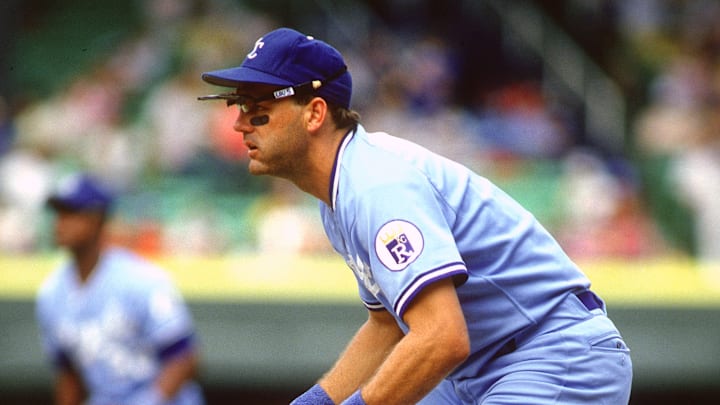Foundational piece or flash in the pan?
Seitzer followed up his rookie year with a strong sophomore season, but the Royals fell short of expectations in 1988, finishing 84-77 and in third place in the AL West. Hardly terrible, but not the breakthrough they were hoping for — that came in 1989. Sort of.
Following the championship run in 1985, 1989 was Kansas City's best season until their back-to-back World Series runs in 2014-2015. Brett did typical Brett things, and Jackson took a huge leap forward, posting the best season of his all-too-short career. He appeared to be on the verge of becoming a true baseball superstar, not just a human highlight reel, and fellow outfielders Tartabull and Jim Eisenreich continued their upward trajectories.
Ironically, Seitzer proved to be the weakest cog in the machine. This isn't to say he played poorly. His 1989 was solid, despite a noticeable drop in power: .281/.387/.337, four homers, 48 RBIs, 17 doubles, and a .723 OPS. Combined with Bret Saberhagen's second Cy Young Award and solid performances on the pitching side from Mark Gubicza and Tom Gordon, the Royals finished with a 92-70 record.
Unfortunately, that was only good enough for a second place finish in the AL West. The Oakland A's were in the midst of reaching the World Series in three consecutive seasons — they won it all in 1989 — and they finished seven games ahead of Kansas City. There were no Wild Cards in 1989, so the Royals spent October at home.
